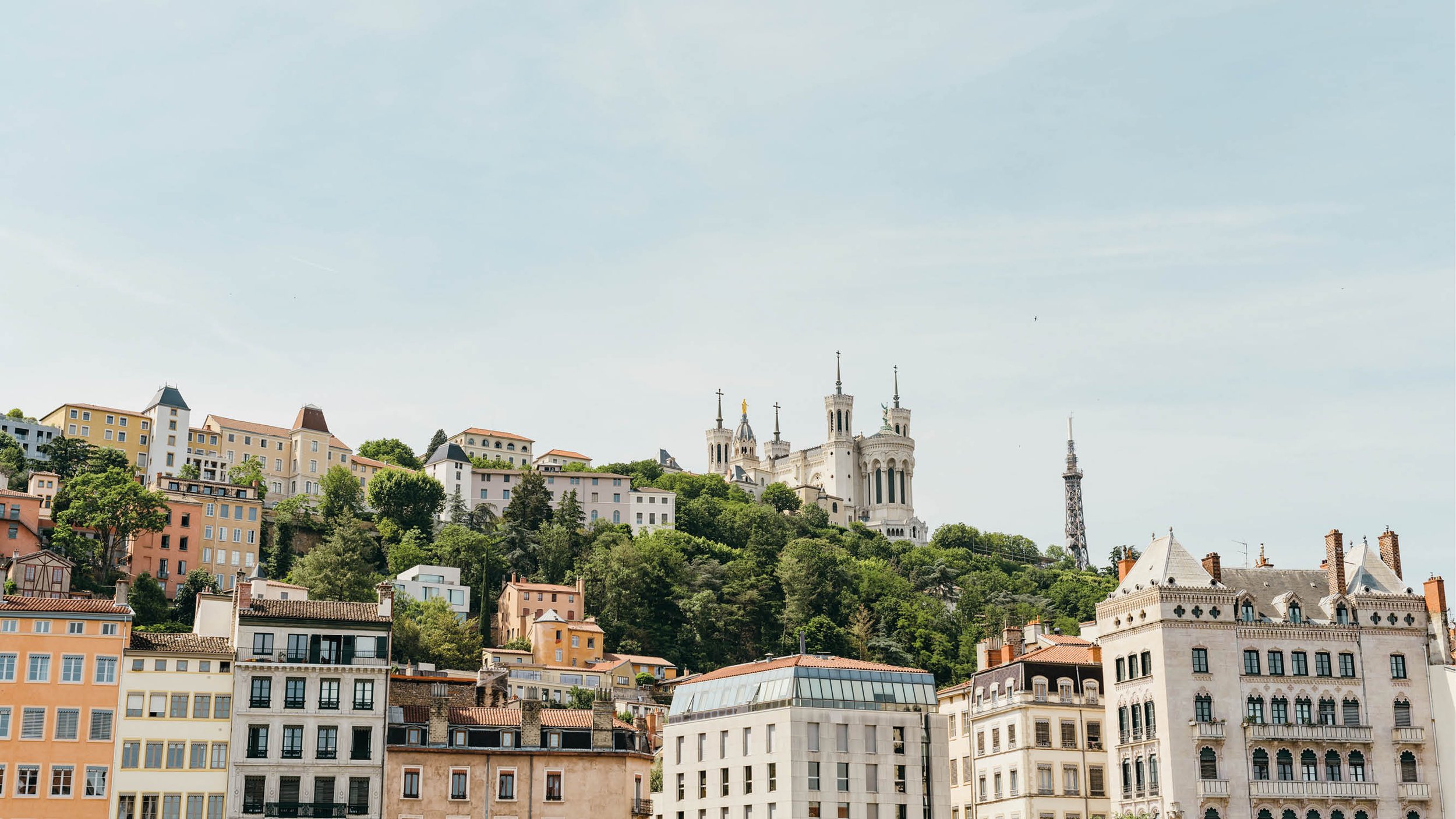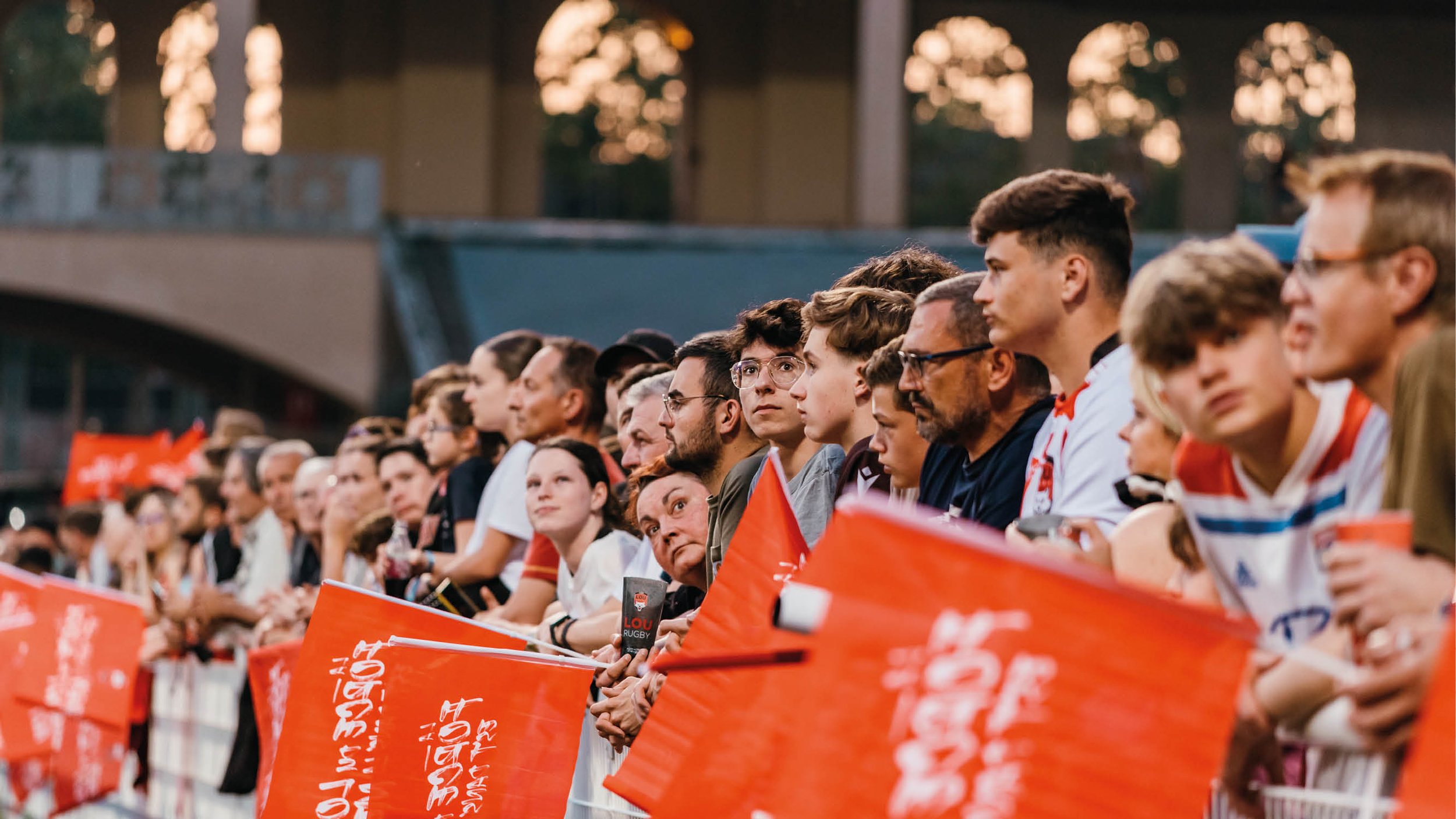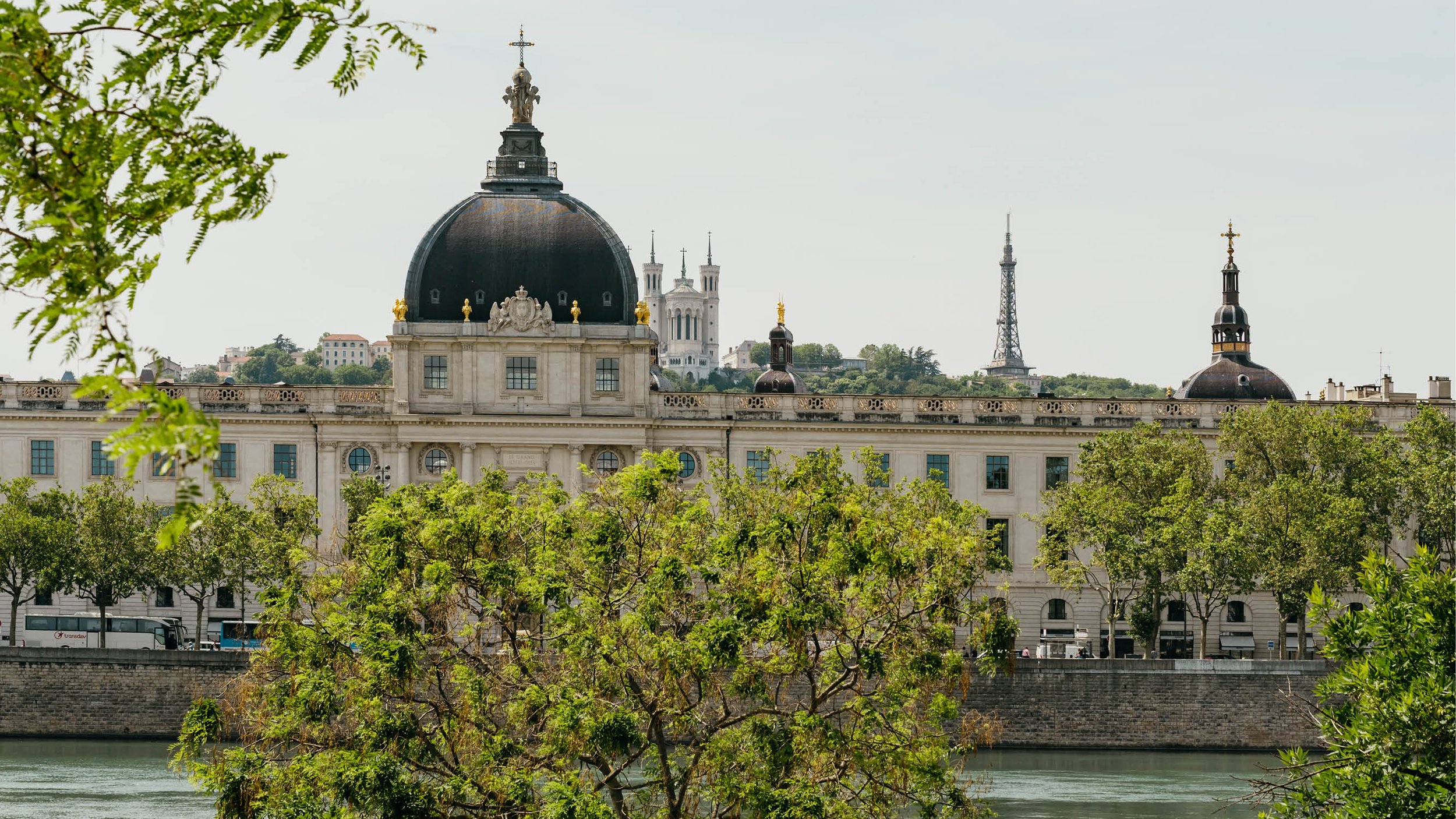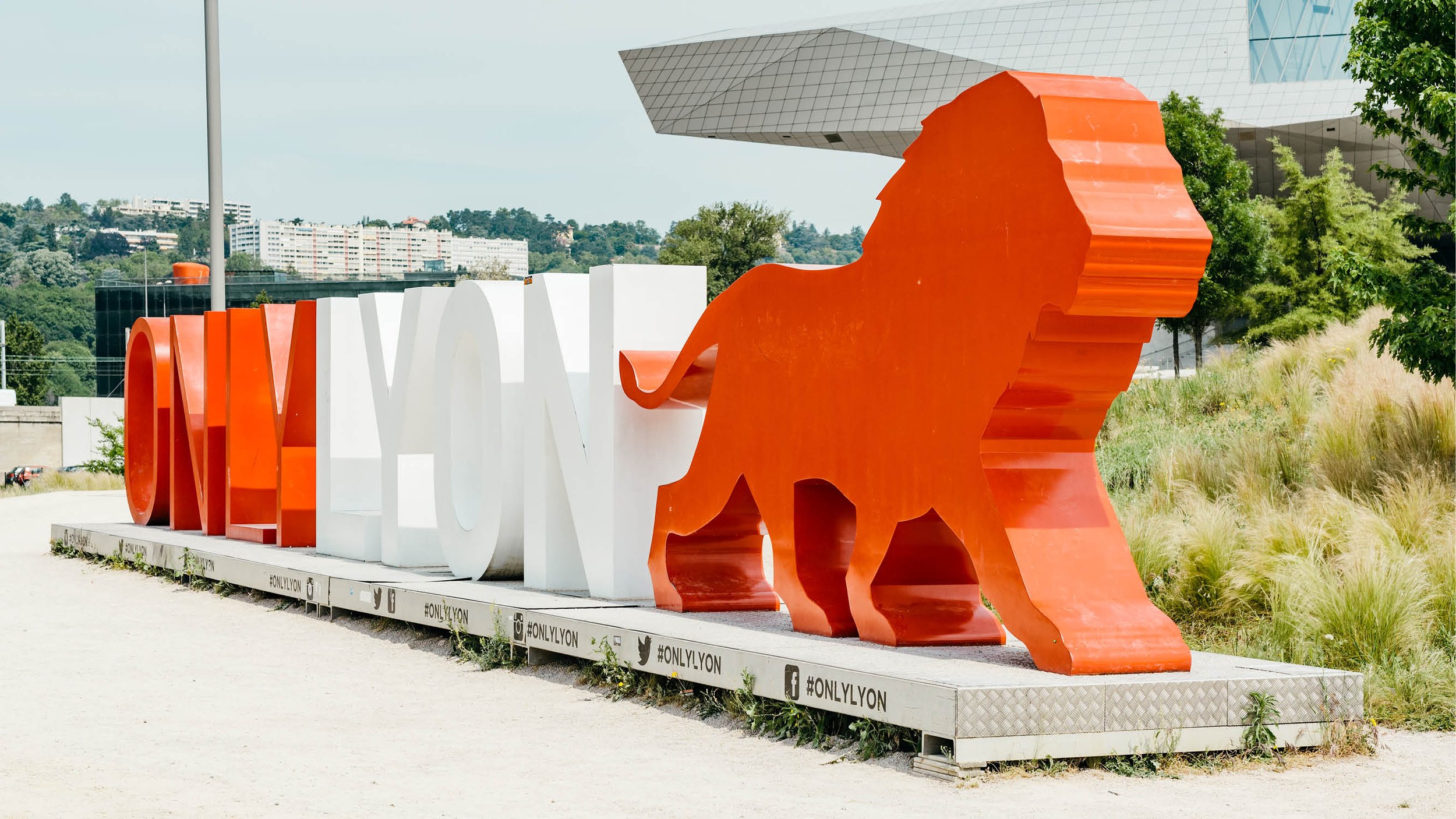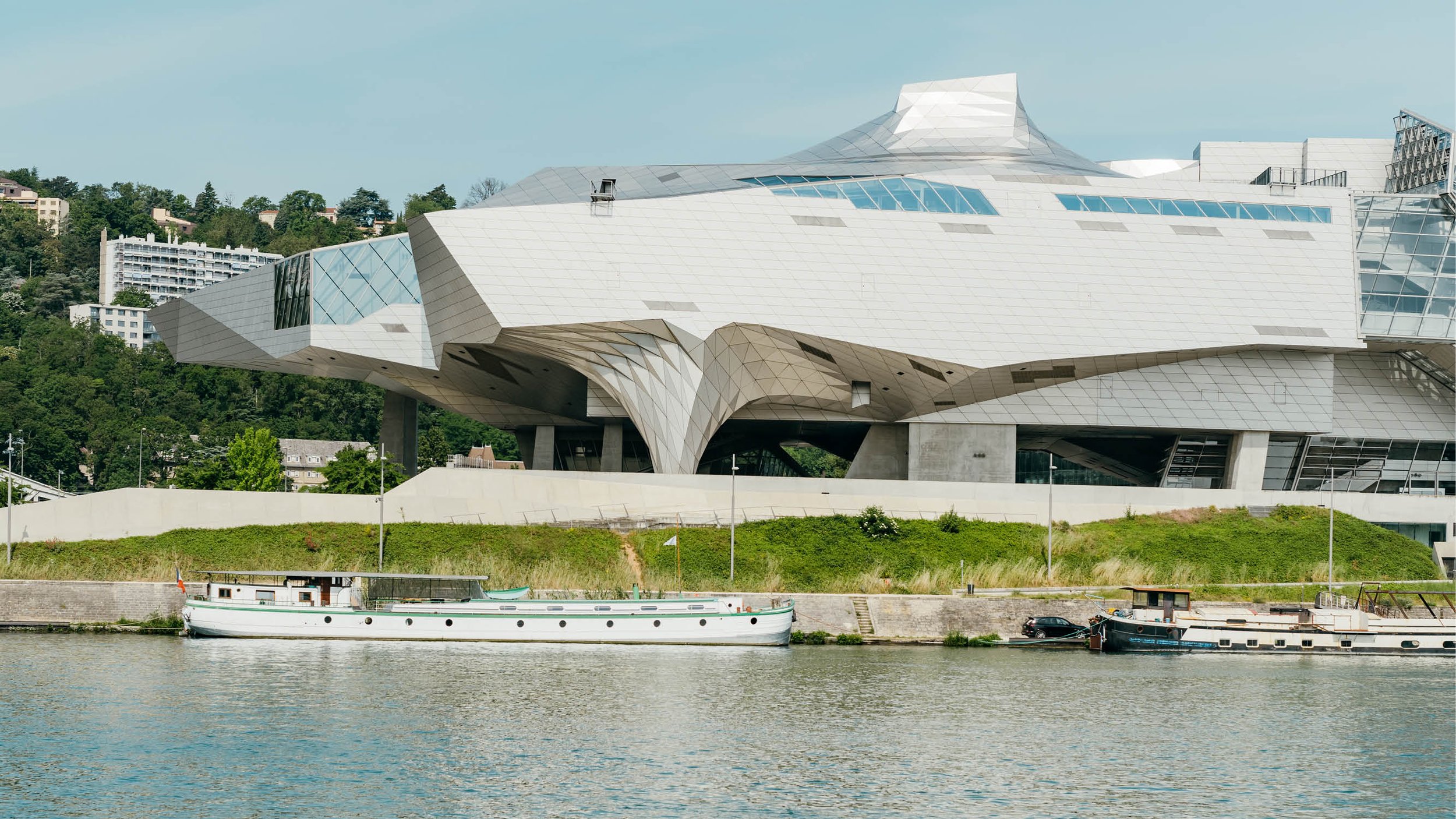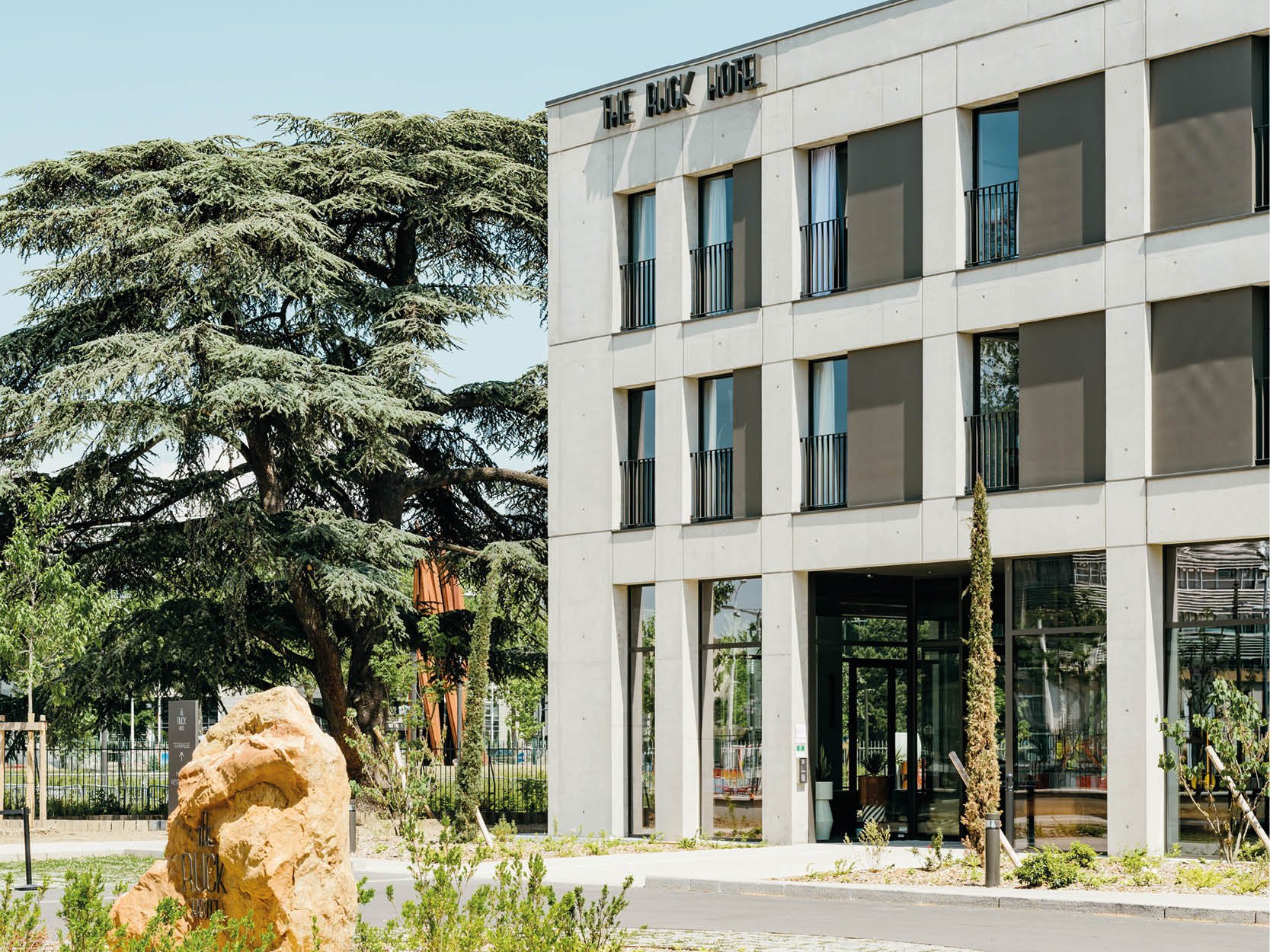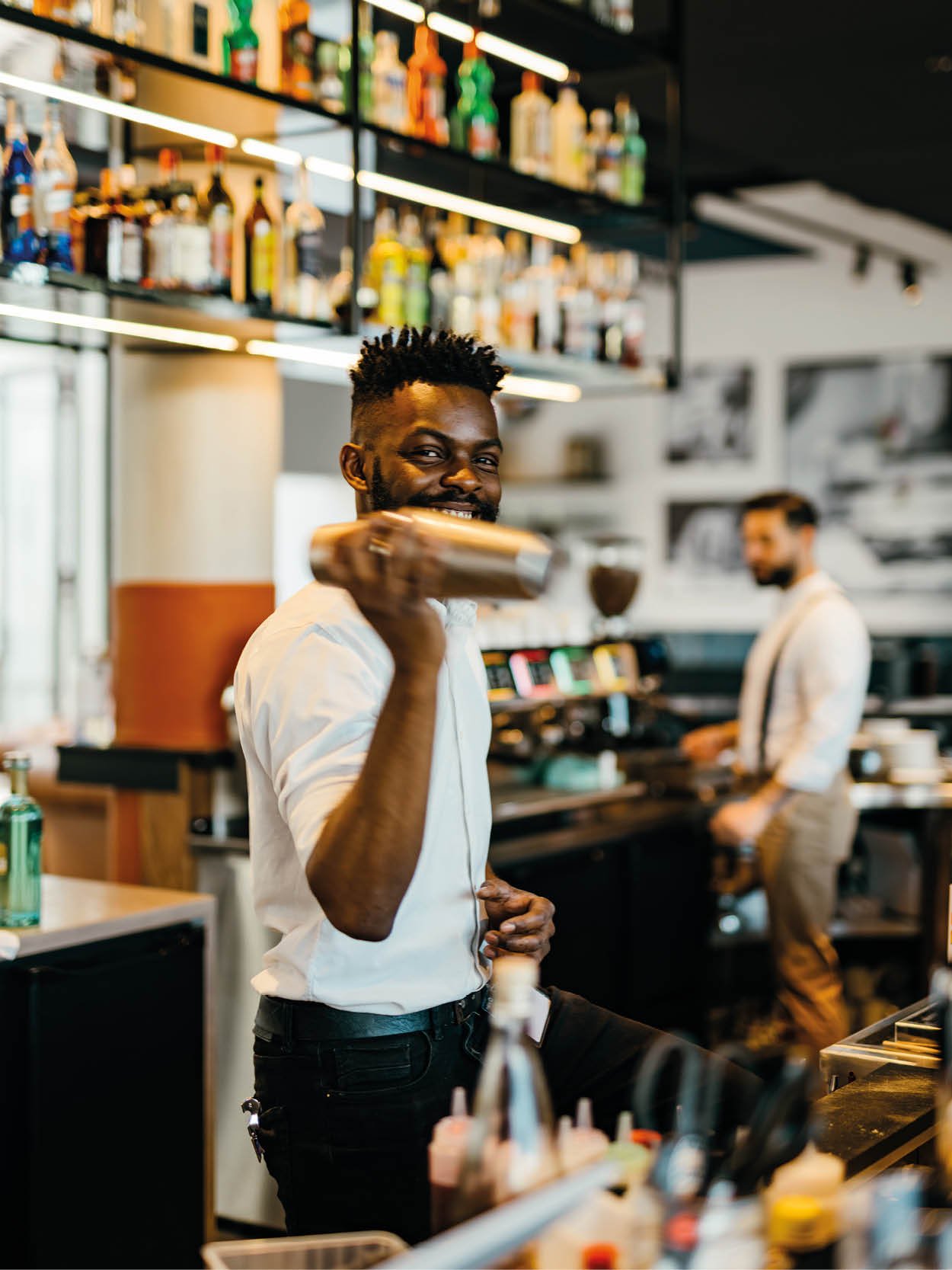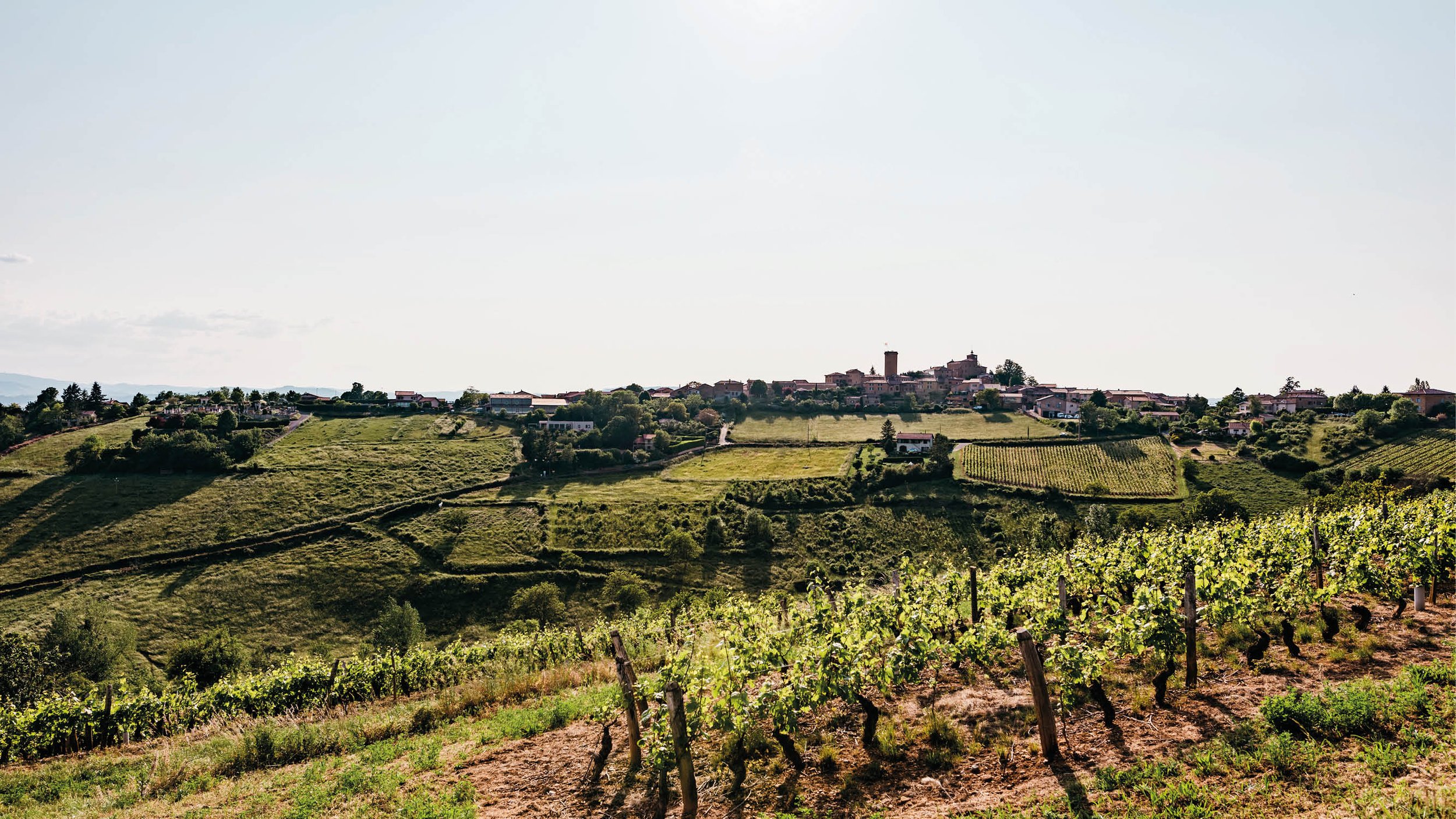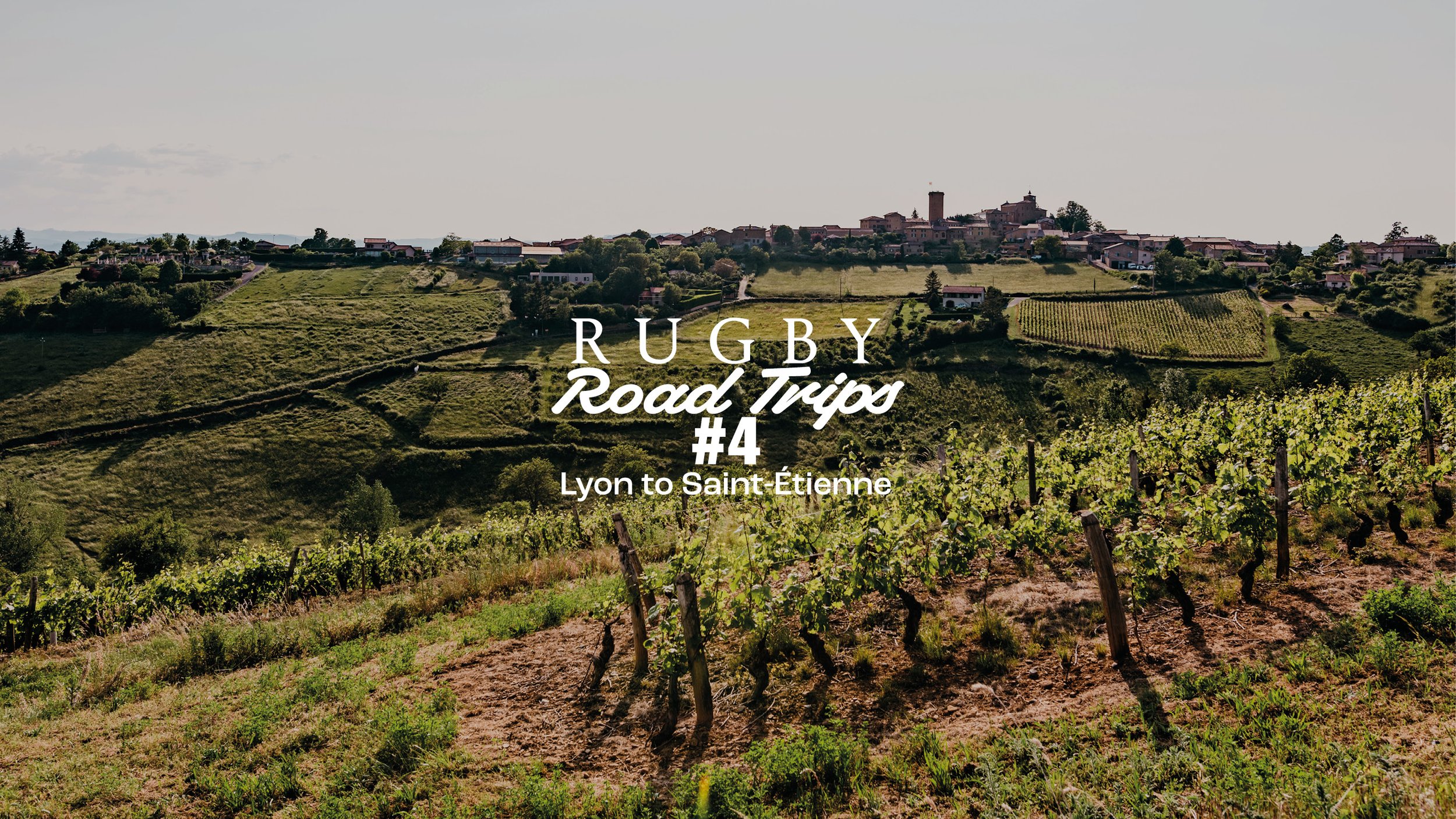
In the heart of France, beneath the vines of Beaujolais, two cities are readying for rugby’s greatest show. The round-shaped ball has been long favoured in Lyon and Saint-Étienne but led by a 130-year-old club, and fuelled on wine-laden breakfasts, this might just be the best place you’ve never visited for rugby.
At the confluence of the Rhône and the Saône, just off centre from being halfway between Marseille in the south and Paris to the north, Lyon is a city with an awful lot to shout about. From the ruins of Roman amphitheatres to 14th-century cathedrals and avant-garde contemporary architecture to its UNESCO World Heritage Site old town, the cobbled streets of Lyon have myriad claims to fame. The spiritual home of Paul Bocuse and nouvelle cuisine, the one-time Roman capital of Gaul mocks anyone that suggests Paris is the country’s gastronomic capital. It might pack little more than 520,000 Lyonnais into its borders, but it punches globally, and not just for what’s happened in the past, but also the future as it’s become a hub for the life sciences sector, from biotech to medial technology, making it a fertile breeding ground for modern innovation. And just as the city enters yet another a new phase, so is its premier rugby club.
Lou Rugby, part of one of the oldest sports clubs in France having been founded in 1896, are beginning to establish themselves at the top of the rugby tree after years as a proverbial ‘yo-yo’ club. Promoted and relegated from the Top 14 three times between 2011 and 2016, Lyon finally secured a spot in the league for a consecutive season with a respectable tenth-place finish in 2016/17 season. But, in typical French fashion, the table flipped within the space of a year. The club finished third the year after and reached the semi-finals, eventually falling by 40-14 to Montpellier. Another semi-final came the following season, this time losing to Clermont, but it demonstrated the club was ready to challenge for titles. After the pandemic disrupted seasons, Lyon fell back down the table for a few years but did secure their first ever European trophy last year, beating Toulon in the Challenge Cup final.
This season Lyon are back on track, sitting sixth and among the play-off spots with one game to go. The night Rugby Journal arrives in town, they’re at home to Bayonne, a place below them in seventh; a bonus-point win and Lyon could move as high as third and secure a home quarter-final, but a bonus-point loss and Bayonne would leapfrog them into the knockout stages.
At the helm throughout this stabilising period has been the club president Yann Roubert. After a varied career in sports marketing Yann joined the club in 2012 as a huge fan of the sport. “I would prefer to play fly-half or full-back than be president,” he tells us. Although not a player himself, sport is at the centre of Yann’s story. Originally from the Alps he played football for (whisper it quietly) Saint-Etienne, but at fifteen he opted instead to ski. This proved a disaster after one season as he broke his ACL, but this was not to be the end of his sporting story as he moved into sailing as well as mountaineering.
“In sports, we all speak the same language whatever sports is it you play,” he says. “I recall when I employed one of our hookers, I said if you don’t have your prop with you when you go into the scrum, you don’t feel much better than me if I have nobody at the end of my ropes in mountaineering.”
Yann took a year out of work to travel and followed his mountaineering passion all over the globe before, in 2009, joining GL Events, the main shareholder of Lou Rugby. Originally, he worked in Dubai but eventually a return to France beckoned where he took charge of the club. “Lou Rugby was in the second division and ninth in Pro D2 when I arrived. But I had the conviction that we could do great things because Lyon is a big city, and it’s been nearly 130 years since people have been sweating and giving energy to this jersey.
“The last time we were French champions was in 1933, so we’ve been messing up for ninety years. But the potential here is huge. You will often think about Toulouse in the southwest of France when you think about rugby, but if you look around Lyon, we’ve got about a hundred clubs and sixty thousand players, which shows the passion and the players are already here.
“We have got to write the modern story of this very ancient club, and we have the means to do it. We’ve already come from the second division, which was step one of the project we set out. Step two was to stay here, which we’ve done, and step three is to win Top 14. Of course this is not the easiest step to climb, but when we won the Challenge Cup, the first ever European title in Lyon, I believed it may be the start of the third era.”
Not only has Yann tapped into the history of the rugby club to brings fans into the stadium, but the club has also closely connected with the history and the culture of the city. In other words, food and wine.
“We are the only professional club in Lyon, so our aim is to be one hundred percent Lyon,” he continues. “In Lyon you have this great sense of hospitality, so when you are here you eat well, you drink well, you party. The best symbol we have about mixing rugby and Lyon is the Le Grand Mâchons Lou. Every year at the club we have the biggest mâchon in the world, with 1,500 people coming and the tickets sell out in nine minutes, and all the benefits go to a charity.” Yann pauses as pulls out his phone and shows a video of a vivacious crowd packed to the rafters of the Lyon hospitality, singing and chanting in unison. “That’s at 9:30 in the morning,” he explains. “I think the wine had been open for some time.”
Food distracts from everything in Lyon, including rugby, and the mâchon is a welcome distraction, dating back the city’s silk workers, the Canuts, who would gather for breakfast around tables covered with the now iconic check tablecloth.
Eating and drinking at Lyon has become almost as important as the rugby itself. Not only will you find your typical matchday burger vans but the Stade de Gerland has its very own brasserie, open every weekday, that houses around three hundred punters a day including the Lyon squad. Eating here for the players isn’t just about getting their protein in, it’s about togetherness. “The mâchon is a very good symbol of what we have to be,” Yann adds. “We train hard, we play harder, but for us rugby also means partying and conviviality.”
With the rise of Lyon, Yann has watched as rugby has grown in importance to the city. “When I arrived I could feel the embers, but it was our job to blow on it so that it becomes a huge fire,” he says. “What I like seeing is more and more stickers of Lou Rugby on peoples’ cars; I even saw some when I was in Paris, so I think someone must have been following me.
“But one thing that shows how much it means, the attendance record at the Groupama Stadium [the home of football team Olympique Lyonnais, and the host stadium for the Rugby World Cup] they often forget to mention that it was for a rugby game [the 2018 semi-final against Montpellier].”
What better time for the Rugby World Cup to come to the city? A host of nations including France, Wales, Australia, Uruguay and Italy will play group games at the Groupama Stadium, to the east of the city, but most exciting is New Zealand, who will be based in the city, train at Lyon’s stadium and will stay in the four-star Ruck Hotel, newly-built by the club adjacent to the Stade de Gerland.
“Having the All Blacks, the most prestigious team in the world, to choose the Lou Rugby setup, this is a big reward for the investment we made within the city and within the club,” says Yann. “You can’t dream higher than having the All Blacks, so we will take good care of them.”
As the Stade de Gerland begins to fill, you can see that appetite for rugby Yann talks about. It’s sold-out, 25,000, the most Lyon have welcomed all season; in fact, it’s the most they’ve had since moving into the stadium in 2017.
Three pool matches were played here in the 2007 World Cup, but with the Groupama’s greater capacity the Stade de Gerland will be a training venue only this time around. It’s a rather unique setting for rugby. The concrete design is the work of local Tony Garnier, a forerunner of 20th century French architecture. Archways that encase the entire stadium give it the feel of a Colosseum, but now retro-fit with a modern glass stand and artificial turf. Garnier’s other great contribution to Lyon’s visage is just around the corner, La Halle Tony Garnier, originally a slaughterhouse, then an armoury in World War One but now, in an unexpected turn, a popular concert venue.
One man who has become very familiar with these surroundings is Lyon captain and Samoa international Jordan Taufua. He’s made a big impression since he arrived in 2020; as he walks over, dressed in multi-coloured crocs and bucket hat, the club’s press officer tells us that Jordan is very important around here.
Auckland-born Jordan started his rugby journey with the Crusaders in 2013 and went on to make over one hundred appearances, securing three Super Rugby titles along the way. A move to Leicester in 2019 was next, but his time in England was ravaged by covid and wrangling over pay cuts and then Lyon offered a way out. “Coming into 2020, moving to France wasn’t really on my mind at the time,” he says. “I was looking to stay in the UK and make my mark there. But I’ve come here and enjoyed every moment. Coming here and seeing the potential of the club, the players and the talent here, I knew there was something I could actually offer and just bring a different mindset. It’s been pretty awesome to see where the club’s come from when I first got here to where it is now.
How is it different from Leicester? “It’s two very different styles of rugby. Here you’ve got the French flair whereas at Leicester they were all about being physical and structured. They’re really good at what they do. I quite like it here, it’s more similar to the way I played back in NZ, open rugby, attacking rugby. You never know what’s going happen with the way the Frenchie’s play.”
And of course, the lifestyle. “I guess it’s different cultures. Here they drink to enjoy their wine, whereas back home in New Zealand, you drink to get pissed.”
When those All Blacks fans follow their team to Lyon in September, perhaps to overindulge in Beaujolais red, what they’ll find in the stadiums is unlike anything they get back home. “I thought in New Zealand we have passionate fans, but you have guys here that are proper diehard,” says Jordan. “They are even at training every day, their life is the club. Also they just chant the whole way through – in New Zealand you get the odd packed-out game, but they’ll see something new out here in France. The All Blacks are going to be in shock with how good the crowd is. This county is one of the best to play rugby in.”
Jordan has spent the last few months on the side-lines with injury but is hoping to back in time for the World Cup with Samoa. Once upon a time in 2018 he was called into an All Blacks squad, but didn’t feature due to injury. Last year, he made his Samoa debut, the home of his mother and father, and sees it as an opportunity to play for his family, his people and his culture on the biggest stage.
With recent rule changes allowing players to change their national allegiances after a three-year standdown, Jordan believes it’s only a good thing for the sport.
“I think it’s evening up the teams and making a more competitive World Cup, that’s what people want to see. The opportunity for small tier two nations to compete with the tier one nations, that brings more spectacle and excitement to the game.”
Another rugby import tempted to France’s food capital is ex-Saracen lock Joel Kpoku, who took the step only a handful youngsters from his part of the world do and crossed the English Channel. Having taken a leap of faith at just 22 he was desperate to hit the ground running, but things didn’t go to plan, injuring his MCL ankle thirty-three minutes into his debut against La Rochelle. “All I could do was put my head down,” says Joel. “The rehab was going really well, the physios looked after me. I got fit but I was actually put on the side for like for six weeks, and then I had one game against Montpellier, started the game and I did what I could.”
Joel put in a pivotal performance in a 43-20 demolition of the future French champions, one that finally gave him a chance to settle in the Lyon side. “Winning the Challenge Cup was a surreal moment for myself, coming from an environment at Saracens with the likes of Maro Itoje and George Kruis ahead of me all the time, I wanted to have my own my own journey in terms of actually winning a trophy,” he says. “I was just holding a tackle bag for them at Saracens, so to come to an environment where I’m properly involved was unbelievable.
“Lyon is amazing,” he continues. “I’ve got my girlfriend here now, she’s living with me so I’ve made it my home now. Culturally the people are very different here, people keep themselves to themselves, I’ve adapted to doing things for myself. I came out here on my own at a young age and I didn’t know much about Lyon beforehand, so I had to mature quickly, I couldn’t just pop home and get something cooked for me.
“French is my first language due to both my parents being from Congo, so that helped me integrate into the squad,” says Joel. “In terms of the club I couldn’t speak any more highly of it, it’s a real family unit and I still feel a part of it even when I’m not playing.
“I’m not much of a wine drinker but the bread, the cheese, the pâté, I’m all here for it. I try to stay away but it’s so addictive. I have a bakery right next to my apartment where I live, you can just smell it and it’s so tempting.”
Much like Jordan, for Joel the support at French rugby is nothing like you get back home. He expects fans travelling for the World Cup to be blown away. “It’s the noise, that’s the main thing,” he says. “The noise, the camaraderie, its nothing like Twickenham. The other thing is there’s none of the respect for kicker stuff, for both teams. Whatever it is they are still going to be shouting.”
France is now his home, so will he be supporting them when Les Blues come to town to face Italy? “I’ve kind of inherited that French side of things, so I obviously want France to win, but then also hopefully England obviously do well too.”
Lyon might just be the perfect rugby hub, not just for what’s in the city, but also what’s near it, like for instance the famed wine region of Beaujolais, a short drive north of the city. One of the finest stops along the Vallée de la Gastronomie, the celebrated food-and-wine road route that runs all the way from Dijon to Marseille, the rolling hills and vines of Beaujolais are famed the world over, quenching the thirst of Lyon for hundreds of years. Gamay is the grape grown here, almost exclusively, initially gaining its notoriety as a youthful, light and intensely fruity red wine often consumed within months of production, nouveau becoming somewhat of a craze with the clever marketing of merchants such as Georges Duboeuf. There is white here too, although only two percent of the region’s production and made from Chardonnay, but it’s a real hidden gem with a light and sweet flavour.
While the vines govern the Beaujolais landscape, the towns and villages dotted in between cannot be overlooked. The village of Oingt is the gem at the heart of Beaujolais, the honey-coloured walls and stunning hilltop views earning it an official title as one of the most beautiful villages in the whole of France. Through the centre of the old town there is an elegant street lined with spots for a drink or even an ice-cream to relax after a steep climb up stone steps to l’Église Saint Mathieu. With the bustle of Lyon and the tranquillity of Beaujolais to its north, there’s something for everyone in south-central France.
And to its south, specifically sixty kilometres to the south-east, there’s another World Cup host city, Saint-Étienne. Here, Italy will face Namibia, Argentina take on Samoa and Australia tackled both Fiji and Portugal.
With a football club boasting ten French titles, Saint-Étienne may not be a traditional rugby heartland, but it only takes a few hours enjoying the intimate side streets, contemporary bars and array of architecture to feel this city is perfectly geared for a festival of rugby. It’s a sport city after all, and has hosted big tournaments before; Euro 1984 and 2016, the 1998 FIFA World Cup and of course the 2007 Rugby World Cup. Whether round or egg-shaped, Saint-Étienne’s got it covered.
Sitting at an altitude of 1,690 feet in the surrounds of the Massif Central, Saint-Étienne certainly has a different feeling to Lyon. A smaller city than its counterpart and with mountains bordering all around, it’s very much in nature.
But the most striking contrast between the two cities is the more contemporary feel of Saint-Étienne. Lyon is steeped in its history whereas here it’s all about looking to the future. That’s not to say there’s no history to speak of – a century and a half ago the city was the county’s industrial heartbeat. Weapons, bicycles and ribbons, that was pretty much the sum of Saint-Étienne. Throw in some coal mining and passementerie for good measure and you get a snapshot of what it used to be. Visit today and you’ll see some hints of that time, but today Saint-Étienne is a city renewed. It has undergone a substantial cultural facelift, converting from the city of industry to the city of design – nothing is more emblematic of this transition than the old imperial armaments factory, known as MAS, which now houses the school of art and design. As you step out the train station, only three hours from Paris via the TGV, the new dawn of Saint-Étienne greets you immediately. The Chateaucreux district is resplendent with contemporary projects – there’s a blue horse statue to your left, a multi-coloured tree in front of you, and every public bench is designed in a colour and genre different to the next. Offices, flats and hotels don’t escape the re-design, dressed in cherry red and lemon yellow, it’s a sign of how the city has shaken things up.
To the north of the city is where the sporting action will take place. The Stade Geoffroy-Guichard, the 42,000-capacity stadium that will host four pool games, is the home of AS Saint-Étienne, the club that dominated French football in the 1960s and 70s. The stadium itself reflects the story of the city. Built on an old mining ground and opened in the 1930s – unexpected holes appearing in the playing surface were not uncommon in the early days – the stadium has gone through three generations of renovation. For England fans, of which there are many heading to Saint-Étienne despite the lack of England games here, the Stade holds great sporting memories; who can forget that Michael Owen goal against Argentina in 1998? Samoa fans will also feel the tingle of nostalgia as they return to the scene of their 46-point thriller of a win over the USA in 2007 when they face Argentina this time around.
Back in the city, there are countless options for fans to enjoy their time here. Try the newly opened ‘Six Nations’ pub in Place Jean Jaurès, established especially for the World Cup to encourage spectators of all nations to stop by. Rumour has it the Australian team, who will be based in the city and face Fiji and Portugal here, have already tested out the facilities thoroughly, with positive reviews all around. Quartier Saint-Jaques is another area that is sure to be buzzing come September, home to the Smoking Dog, the best rated drinking spot in the city. A fan village is also being prepared in Parc Francois-Mitterand, not too far from the stadium itself, for all to gather.
In the September sunshine, as the city embraces its visitors with culture
and hospitality, Le Chaudron (the cauldron) will be bouncing whichever
team is gracing the field.


